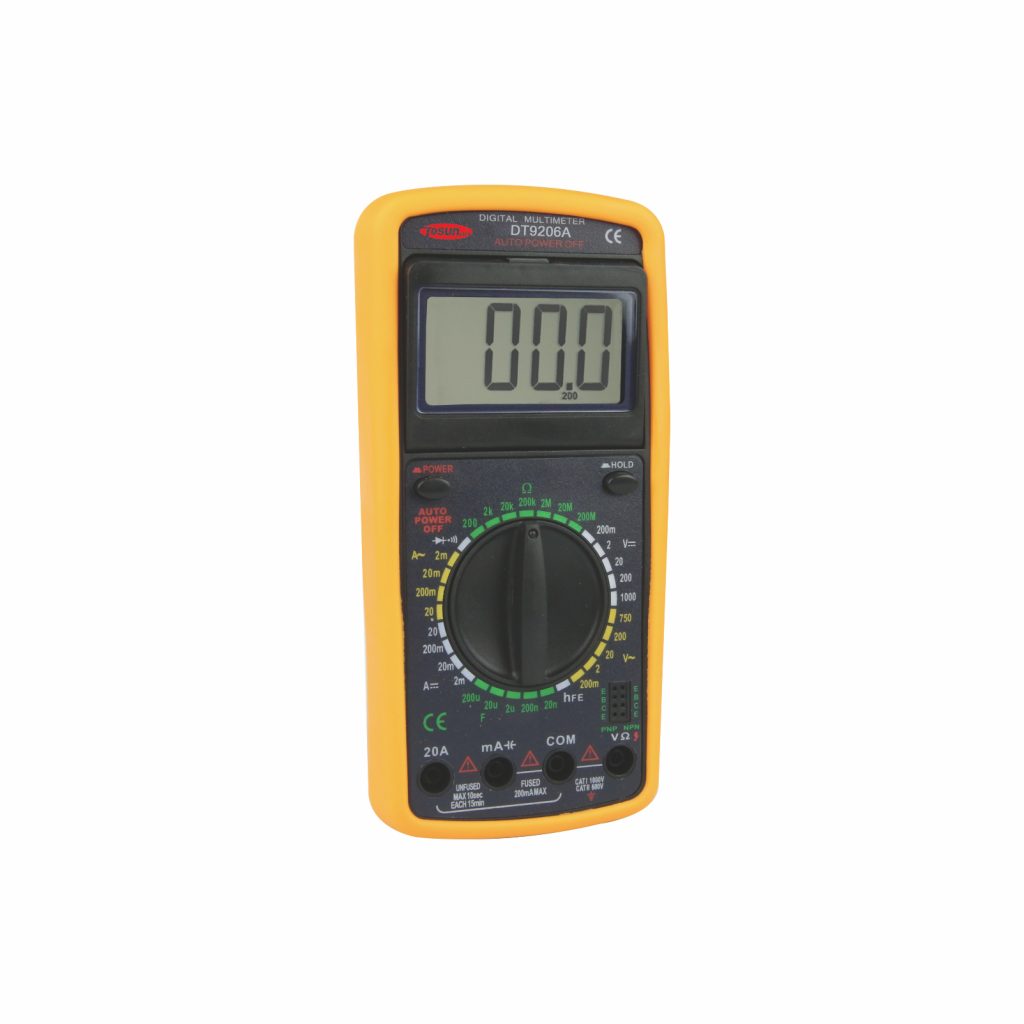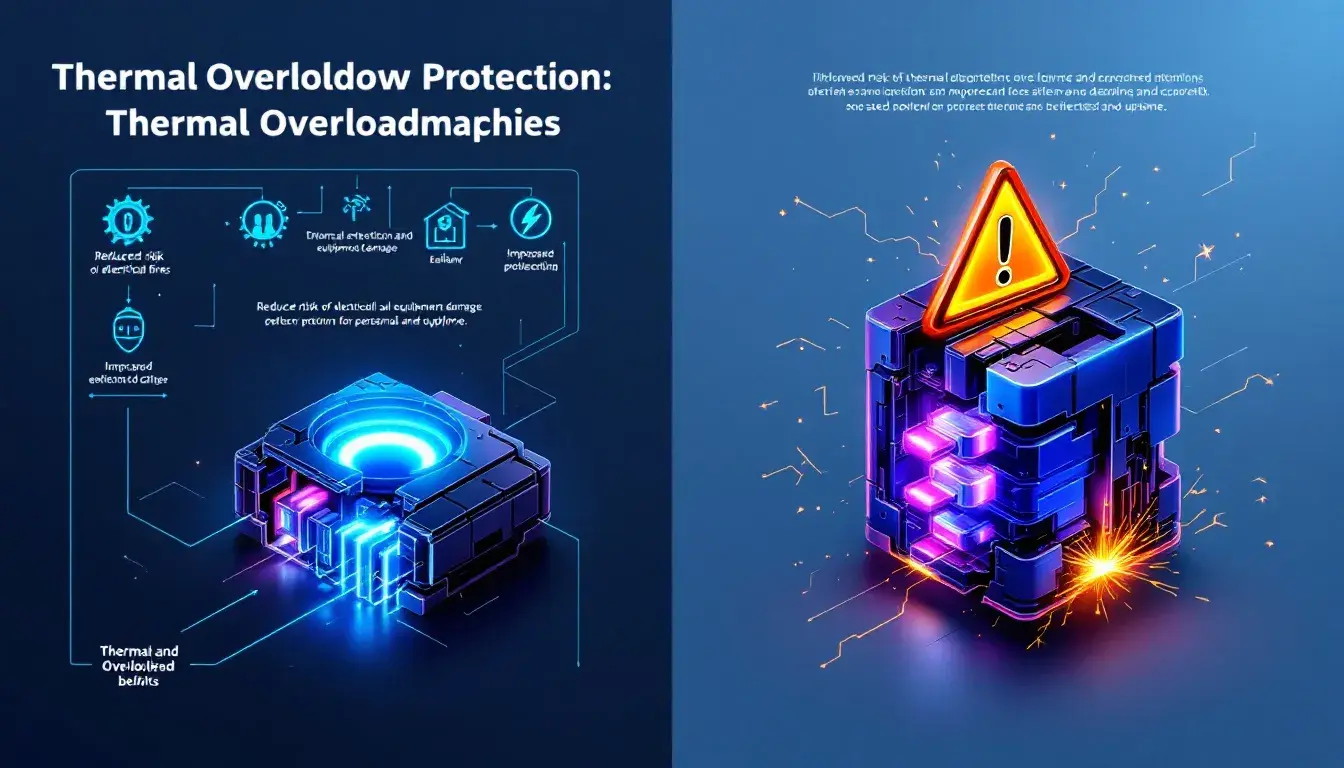How to Choose a Digital Multimeter
Table of Contents
ToggleWhen buying your first digital multimeter, prioritizing safety certifications and general specifications suitable for basic use is crucial. Auto-ranging models provide simplicity for beginners without compromising accuracy.
A multimeter is an essential tool for every business and hobbyist. If you’ve never purchased one before, the process can be daunting given the numerous technical specifications and models available. In this article, we will walk through the key factors to consider when selecting a digital multimeter for home use and provide recommendations for good multimeter brands.
Selecting a Digital Multimeter – Things to Consider
Here are a few things to keep in mind while learning how to choose a multimeter:
The Type of Multimeter
The first decision is whether to opt for a manual ranging or auto ranging multimeter. In manual ranging meters, you must know the approximate range of voltage, resistance, or current expected and manually set the range on the meter. Auto ranging models detect the measurement range and select it automatically for you. This added convenience makes auto ranging multimeters ideal for beginners and everyday industrial use. When considering how to choose a good multimeter for beginner, auto-ranging models are often recommended.
Related Reading: Digital Multimeter Types
Maximum Voltage
Consider the maximum voltage you need to measure. General-purpose digital multimeters suitable for around-the-facility electrical tasks usually measure up to around 600 volts. Auto-electricians working on high voltage auto systems will require meters that go up to 40,000 volts or more. For simple home use, 600 volts is sufficient. Anything beyond that is overkill.
Resolution
The resolution indicates the smallest value that can be shown on the multimeter display. Most standard digital panel meters and multimeters today offer a resolution down to 0.1 mV which provides accuracy for common household applications. Models with higher resolutions up to 0.01 mV are recommended for precision electronics work. When choosing how to choose a multimeter for electronics, consider models with higher resolution.
Special Features
Look for any special features that may suit your particular needs. Useful options include:
- Continuity beeper to audibly indicate circuit connectivity
- Diode testing function for diodes and transistors
- Low impedance mode to reduce stray interference
- Backlight for low light conditions
- Temperature capabilities via a thermocouple
- Frequency and capacitance measurements
- Data hold function to freeze readings
- Long battery life for extended use
Safety Certifications
An important consideration in how to choose a multimeter is to ensure it meets relevant safety standards. At minimum it should be fuse protected. Consumer-grade meters meeting CAT III and CAT IV ratings offer protection against surges and spikes for the household voltages measured.
Durability
Check the durability features and overall robustness of the good multimeter for electronics. Look for strong impact resistance, heat resistance, and water ingress protection to withstand occasional drops, extreme temperatures or wet environments. Units encased in protective rubber holsters help absorb knocks.
Related Reading: Digital Multimeter Use Guide
Conclusion
Key considerations for how to choose a multimeter include the auto vs manual ranging, voltage capacity, resolution, and budget. For beginners, a durable, auto ranging model with CAT safety ratings offers everything necessary to get started. You can contact TOSUNLux, a reputable multimeter supplier; they make high quality beginner-friendly options that won’t break the bank.
Tel: +86-577-88671000
E-mail: ceo@tosun.com
Skype: tosunelectric
Wechat: +86-139 6881 9286
WhatsApp: +86-139 0587 7291
Address: Room No.1001 Wenzhou Fortune Center,Station Road, Wenzhou, China
REQUEST A QUOTE
WhatsApp us
 : +86-139 0587 7291
: +86-139 0587 7291 English
English Español
Español Русский
Русский Français
Français العربية
العربية Português do Brasil
Português do Brasil Українська
Українська Türkçe
Türkçe Polski
Polski Nederlands
Nederlands Italiano
Italiano Bahasa Indonesia
Bahasa Indonesia हिन्दी
हिन्दी اردو
اردو አማርኛ
አማርኛ Հայերեն
Հայերեն ไทย
ไทย Монгол
Монгол فارسی
فارسی Shqip
Shqip Ελληνικά
Ελληνικά



